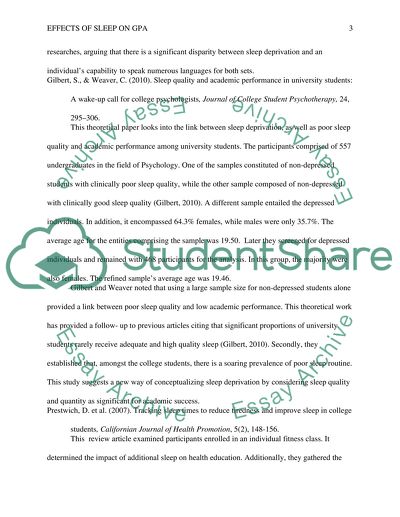Cite this document
(“Grade point average and sleep relation Annotated Bibliography”, n.d.)
Retrieved from https://studentshare.org/psychology/1442615-how-dose-sleep-effect-gpa
Retrieved from https://studentshare.org/psychology/1442615-how-dose-sleep-effect-gpa
(Grade Point Average and Sleep Relation Annotated Bibliography)
https://studentshare.org/psychology/1442615-how-dose-sleep-effect-gpa.
https://studentshare.org/psychology/1442615-how-dose-sleep-effect-gpa.
“Grade Point Average and Sleep Relation Annotated Bibliography”, n.d. https://studentshare.org/psychology/1442615-how-dose-sleep-effect-gpa.


